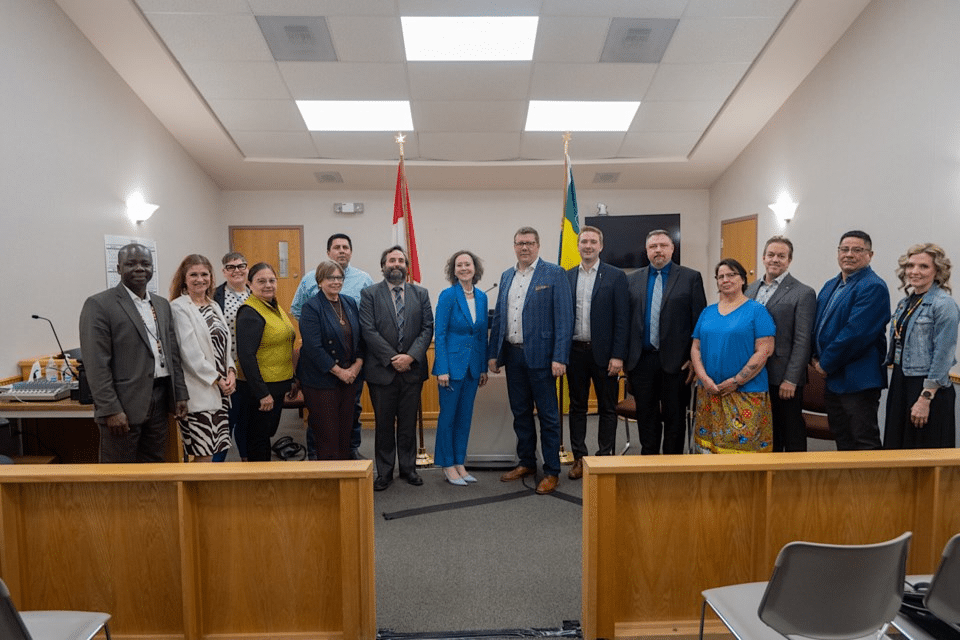Drug Treatment Court Program Expands to North Battleford

The Government of Saskatchewan recently announced the expansion of the Drug Treatment Court program in the City of North Battleford.
Drug Treatment Court is an alternative approach to justice for an accused person who has a substance abuse problem that played a role in their offending. Applicable offences include property-related offences, drug offences where the primary motivation is to support an addiction, and administration of justice offences. Offenders facing a custodial sentence between 12 months and two years are also eligible for Drug Treatment Court.
Jonathan Bodvarson, Legal Director of Legal Aid Saskatchewan’s North Battleford Area Office, welcomes this program to the community. “It is very hopeful that we can make intervention for those serial drug offenders and put a stop to that behaviour,” he says. “It is usually the same individuals addicted to drugs who are committing the same property offences.”
There are currently two Drug Treatment Courts in Saskatchewan – one in Regina, established in 2006, and one in Moose Jaw, established in 2009. Between the two centres more than 140 people have graduated from the program.
The North Battleford Drug Treatment Court program is a result of what Bodvarson calls a “grassroots” effort. “This idea was in motion for many years. Around 2018, now retired Judges Dyck and O’Hanlon started holding meetings about this Court. At that time, there was less involvement from the government – it was more bottom-up,” he explains. “After many years of meeting sporadically, things started to get rolling a couple of years ago with more involvement of judges from Regina providing guidance and Therapeutic Court coordinators organizing the meetings more formally.”
Bodvarson also notes that other community resources, such as residential addiction treatment programs for adults and youth, makes North Battleford a good choice for the expansion of this program.
Using a delayed sentencing model, participants work through the program for approximately one year, and upon successful graduation will receive a reduced sentence. Each participant works with the judge, prosecutor, Legal Aid or other defense lawyer, a case manager and addiction counsellor to support their progress through the program, which includes regular court appearances, one-on-one and group counselling, random drug testing, and life skills or employment training.
“There are two benefits to completing the program: legal and non-legal,” says Bodvarson. “The legal benefit is that usually those allowed into the program are looking at substantial jail if not for the programming. Therefore, they avoid that result. The non-legal benefit are the interventions, such as addictions counselling and providing structure and stability. Those who get through the programming can find themselves with an entire new start at life.”
The Government of Saskatchewan and Government of Canada are cost-sharing the $1.7 million expenditure of the 2024-2025 drug treatment court program. Of this, the North Battleford site will receive $240,000 for its initial year.
Bodvarson is looking forward to the success of the North Battleford Drug Treatment Court when it opens this fall. “I support all types of Therapeutic Courts. This is the model that courts should be pursuing for most criminal behaviour.”
Read more about Drug Treatment Court here: Courts of Saskatchewan – Drug Treatment Court